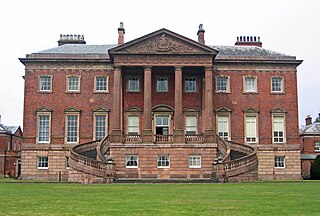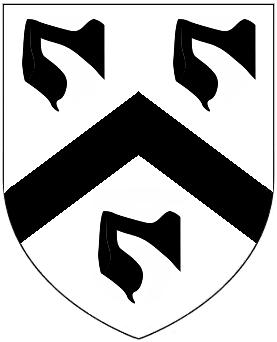
Viscount Hewett was a title in the Peerage of Ireland. It was created on 9 April 1689 for Sir George Hewett, 2nd Baronet. He was made Baron of Jamestown at the same time, also in the Peerage of Ireland. The Hewett Baronetcy, of Pishiobury in the County of Hertford, was created in the Baronetage of England on 19 July 1660 for Thomas Hewett, Member of Parliament for Windsor. Both titles became extinct on the first Viscount's death in 1689.
Nineteen baronetcies have been created for persons with the surname Hamilton, eight in the Baronetage of Nova Scotia, one in the Baronetage of England, five in the Baronetage of Ireland, one in the Baronetage of Great Britain and four in the Baronetage of the United Kingdom. As of 2008 two creations are extant, two are dormant, two are either extinct or dormant and twelve extinct.

The Atkins Baronetcy, of Clapham in the County of Surrey, was a title in the Baronetage of England. It was created on 13 June 1660 for Richard Atkins. The second Baronet sat as Member of Parliament for Buckinghamshire. The title became extinct on the death of the sixth Baronet in 1756.

There have been four baronetcies created for persons with the surname Hope, three in the Baronetage of Nova Scotia and one in the Baronetage of the United Kingdom. As of 2010 one creation is extant, one dormant and two extinct.
There have been four baronetcies created for persons with the surname Rich, two in the Baronetage of England, one in the Baronetage of Great Britain and one in the Baronetage of the United Kingdom. As of 2008 three of the creations are extinct while one is dormant.

There have been four baronetcies created for members of the ancient House of Beaumont, all in the Baronetage of England. All four creations are extinct or dormant.
There have been six baronetcies created for persons with the surname Price, one each in the baronetages of England and of Great Britain and four in the baronetage of the United Kingdom. Two of the creations were extant as of 2008.

There have been five baronetcies created for members of the old established family of Peyton of Peyton Hall in the parish of Boxford in Suffolk, all of whom were descended from Sir Robert Peyton of Isleham in Cambridgeshire, grandson and heir of Thomas Peyton (1418–1484) of Isleham, twice Sheriff of Cambridgeshire and Huntingdonshire, in 1443 and 1453. All the baronetcies are extinct.

There have been three baronetcies, all in the Baronetage of England, created for members of the Spencer family, both for descendants of two younger sons of Sir John Spencer (1524–1586) of Althorp, Northamptonshire:

Sir Richard Myddelton, 3rd Baronet, of Chirk Castle, Denbighshire, was a Welsh landowner and Tory politician who sat in the House of Commons from 1685 to 1716.

There have been two baronetcies created for persons with the surname Leicester, both in the Baronetage of England. The fifth Baronet of the second creation was raised to the peerage as Baron de Tabley in 1826. Both the barony and the two baronetcies are now extinct.
The Wolstenholme Baronetcy, of London, was a title in the Baronetage of England. It was created on 10 January 1665 for John Wolstenholme, who had previously represented West Looe, Newport and Queenborough in Parliament. He had been heavily fined by the Parliamentarians for supporting the Royal cause during the Civil War. The third Baronet sat as Member of Parliament for Middlesex. The title became extinct on the death of the seventh Baronet in 1762.

Sir Thomas Proby, 1st Baronet of Elton Hall, Huntingdonshire was an English politician who sat in the House of Commons between 1660 and 1685.
Sir Thomas Mainwaring, 1st Baronet was an English politician who sat in the House of Commons in 1660.
Sir John Mainwaring, 2nd Baronet DL was an English politician who sat in the House of Commons from 1689 to 1702.

Sir Edward Mansel, 4th Baronet was a Welsh politician who sat in the House of Commons in three periods between 1660 and 1689.
Sir Thomas Smith was an English politician who sat in the House of Commons between 1640 and 1644.
Sir George Warburton, 3rd Baronet (1675–1743) was an English politician who sat in the House of Commons between 1702 and 1722.
Commander Sir Henry Stapleton Mainwaring, 5th Baronet JP was an English soldier and actor.

The Bowyer baronetcy, of Knipersley in the County of Stafford, was created in the Baronetage of England in 1660 for John Bowyer. He sat as Member of Parliament for Staffordshire and Newcastle-under-Lyme. His elder son, the second Baronet, represented Warwick and Staffordshire in the House of Commons. His son, the third Baronet, died childless and was succeeded by his uncle, the fourth Baronet. On the latter's death in 1701 without surviving male issue the title became extinct.











